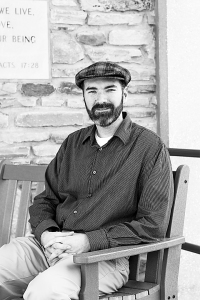I hear it all the time, and I couldn’t agree more; “Don’t listen to the alarmists!” The world is full of people on both the right and the left spouting endless claims about global warming—claims loaded with assertions but too often devoid of facts.
Fortunately, the scientific community offers a clear and consistent picture that helps us cut through the rhetoric and get straight to the data. Last year the non-partisan, Intergovernmental Panel on Climate Change issued a 1,500-page report assessing our knowledge of the global climate system based on more than 30,000 peer-reviewed publications. More than 600 of the world’s top climate experts representing 39 countries contributed to the report. Their conclusions were explicit, referring to global warming as “unequivocal” and stating that the “human influence on the climate system is clear.”
Indeed, no fewer than 97% of climate scientists agree with this assessment–along with every major national and international scientific association. The simple truth is that the overwhelming weight of the scientific evidence points toward one inescapable conclusion—burning fossil fuels releases greenhouse gases, which warm the planet. In other words, the world is warming; humans are causing it; and it’s leading to serious consequences. Perhaps it’s time to move past the so-called “debate” about global warming’s existence and instead ask ourselves, “Why does it matter?”
 During the past 100 years, the world has warmed by about 1° Celsius. While this may not seem like much, we can already measure the impacts from this seemingly small change in the form of rising seas, more heat waves, changes in precipitation patterns, species migration, ocean acidification, and more intense storms. If current levels of fossil fuel consumption continue scientists warn that we can expect to see a further 3° – 5° C rise this century, and that problems will get much worse.
During the past 100 years, the world has warmed by about 1° Celsius. While this may not seem like much, we can already measure the impacts from this seemingly small change in the form of rising seas, more heat waves, changes in precipitation patterns, species migration, ocean acidification, and more intense storms. If current levels of fossil fuel consumption continue scientists warn that we can expect to see a further 3° – 5° C rise this century, and that problems will get much worse.
Importantly, such changes don’t occur in isolation, but have direct humanitarian and economic costs on the global human population. Decreased global food production, increased conflict, spreading disease vectors, water insecurity, more natural disasters, and mass human displacement will each become increasingly common as the world attempts to cope with unprecedented climatic changes. Sea level rise alone will permanently displace 20 million Bangladeshis and inundate entire island countries.
Unfortunately, the brunt of this impact will fall on the poor in developing countries—those least able to cope with such changes. This is where climate change becomes a social justice issue. Those hurt the most by a changing climate are the ones who have done the least to cause it. Meanwhile, those of us responsible for the bulk of greenhouse gas emissions (industrialized countries) are fortunate to be located where climate impacts won’t be felt quite as acutely.
We have unwittingly become party to the most widespread social injustice in human history—one that literally impacts every human on the planet. The question is, “what will we do about it?”
Many claim that climate mitigation is just too expensive, though nothing could be further from the truth. Not only do climate mitigation policies generate jobs through new industries and infrastructure, but they also reduce costs in the areas of health care, disaster cleanup, energy demand, pollution abatement, refugee resettlement, etc. The reality is that the cost of inaction will far exceed the cost of acting quickly to avert the worst impacts of climate change.
Some well-meaning, but deeply misinformed, individuals claim that climate action will actually hurt the poor. The truth is that no one has more to gain from climate action than the poor, who already suffer on the front lines of climate change and are literally begging industrialized nations to slow down their carbon emissions. One Bangladeshi man was recently quoted as saying, “Forget about making poverty history. Climate change will make poverty permanent.” As a Christian eager to fulfill Jesus’ second greatest commandment this statement from a development expert in one of the world’s poorest countries concerns me.
Should a Christian get involved in climate action? You’ll have to answer that for yourself, but first I suggest you ask the Malawian farmers who no longer know when to plant their crops because the rainy seasons have changed. Or residents of the Maldives who are developing a national evacuation plan to escape the rising seas. Or the families that lost their homes in Superstorm Sandy. Or the California farmers who can’t grow crops because of the epic drought. Or the Native Americans of Shishmaref, Alaska, whose homeland is rapidly eroding into the rising ocean.
As for me, I choose to believe the word of those who have devoted their careers to studying the global climate system over those who talk about it on their blogs. And I choose to stand with those who are suffering. What will you do?
-Brian Webb
Brian is the Sustainability coordinator and the intercultural student programs coordinator.

